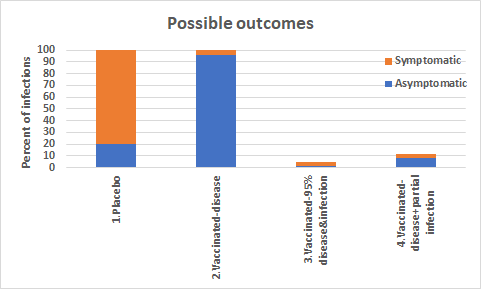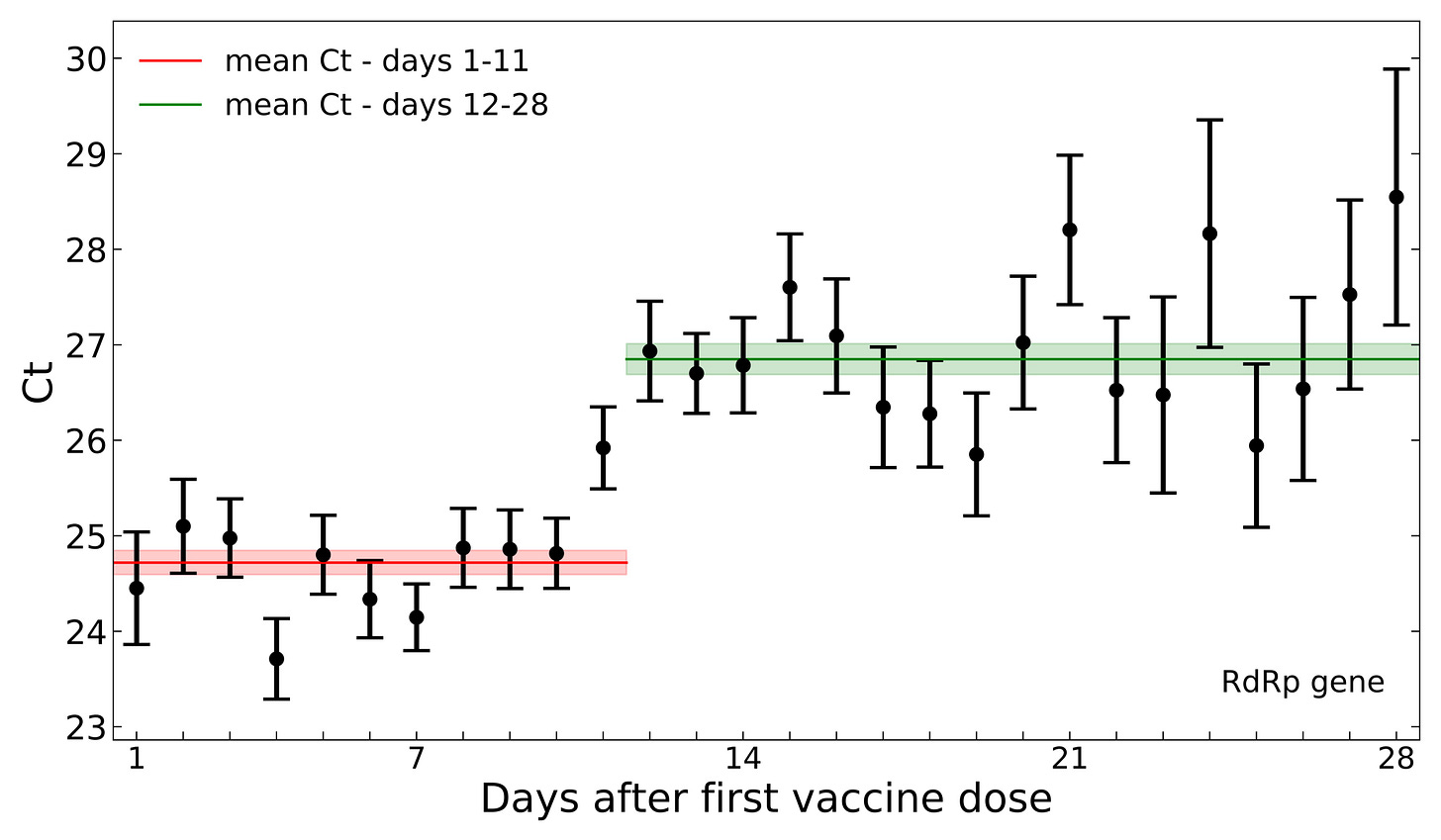Stop doubting it: vaccines cut Covid transmission!
Hackers poisoning water is scary and should be scarier; some of the studies on vaccines and transmission
Welcome to the Hat Tip!
This week we’ve got…
Big News: Hackers poison Florida water
Good News: Coronavirus vaccines cut transmission
Impeachment
Big News: Hackers poison Florida water
Hackers nearly poisoned a town in Florida last week by gaining control of a water plant in Florida and successfully raising the level of toxic chemicals in the water before being caught.
The water plant for Oldsmar, Florida started pumping high levels of caustic sodium hydroxide into the drinking water. Luckily, the hack happened while someone was looking at the screen of a computer which the hackers were accessing via TeamViewer, a remote desktop sharing program. They were able to manually reverse the change and then lock out the attacker.
There’s still a lot we don’t know about this attack. We don’t know if it was some bored kid, or a disgruntled former employee, or a nation-state’s Advanced Persistent Threat team. Was it a Florida Man’s idea of a joke, or an act of war?
This isn’t the first cyberattack on vital infrastructure. In 2018, Russian state APT known as “Energetic Bear” or “Berserk Bear” gained access to the control rooms of multiple US power stations, which sparked a reciprocal conflict where the US hacked Russian power stations in turn.
More recently, Israeli water plants were targeted by hackers believed to be linked to Iran in May 2020.
If I had to guess, I’d say that the Oldsmar water hack was probably a state actor. We’re going to see a lot more of this kind of thing in the future, and countries need to decide when to consider it an act of war or aggression. So far, the tendency has been to under-react to hacks against vital infrastructure, or to respond in kind.
Good News: Coronavirus vaccines cut transmission
Coronavirus vaccines cut transmission of the virus. Vaccinated people are, on average, less likely to transmit the virus to other people than unvaccinated people.
This is really important for exiting the pandemic. But it’s also really important for people to know.
Right, now, a lot of people don’t know this because at first there was no direct evidence that vaccines cut transmission. Loads of articles said “we don’t know if the vaccines cut transmission yet!”, and it became a bit of a mantra among hyper-cautious people: the vaccine won’t free you, because you have to act exactly the same after getting it. And then this same line of reasoning was picked up by anti-vaxxers, too. Why bother getting a vaccine if it doesn’t stop you infecting others and you aren’t scared of the virus?
This AP/NORC poll (which Zeynep Tufekci tweeted about) shows that protecting others is the main reason people want to be vaccinated. Which means that we might do better at convincing people to get the vaccination if they understood that being vaccinated can protect your family, friends, work colleagues and others.
So let’s go though the evidence.
Vaccines cut symptoms like coughing
The approved and nearly-approved vaccines against Covid-19 all cut symptomatic disease by a significant amount, between 66-95%.
Asymptomatic carriers of the coronavirus can and do infect others, of course. But coughing is a particularly good way to spread the virus; it brings up loads of respiratory droplets and also aerosols, which spreads a lot of virus quickly. On average, if nobody coughed, the coronavirus would spread a bit slower. I don’t know how much slower – maybe only a little – but even without doing any tests, we have a good reason to believe that any vaccine that stops symptoms might also slow transmission.
There is a flip-side to this one. If fewer people have symptoms, then fewer will get tested and diagnosed with Covid-19, and fewer will self-isolate. So theoretically, if this was all the vaccines did, the real-world consequences could be more infectious people out there and an increase in real-world infectiveness. But it’s still worth mentioning.
Vaccines mean less people test positive for the Sars-CoV-2 coronavirus
This is the big one. If people test negative for the coronavirus, they basically don’t have it, which means they can’t infect others.
There’s an increasing evidence base that vaccines cut the number of people testing positive.
Israel’s Health Ministry released statistics on January 31 that looked at confirmed PCR coronavirus infections and found just 473 new positive cases among the group of 668,100 people over the age of 60 who were a week past their second Pfizer vaccine dose. This was 83% less than the general case rate among all over-60s who weren’t fully vaccinated, but that group isn’t a control group, because most of them had received at least one vaccine dose themselves.
Now, fully-vaccinated people are tested much less. Most PCR tests in Israel are performed on people who are known to be exposed to another confirmed case. Fully-vaccinated people are exempt from self-isolation so they might be less likely to choose to get tested. But that is unlikely to account for the whole difference.
Also in late January, Israel’s Maccabi HMO looked at all their 163,000 fully-vaccinated members from a week to 16 days after their second Pfizer dose. They observed just 31 cases, all mild or asymptomatic. Maccabi was able to construct a comparator control group and calculated a 92% effectiveness at preventing infection (and therefore infectiveness). I suspect this is a bit high because, again, of sampling issues with the testing. But it’s still pretty good.
A trial on the Oxford/AstraZeneca vaccine specifically tracked positive PCR tests and found that they dropped by two thirds in the vaccinated group after one dose, compared to the vaccine’s 76% protection against symptomatic disease.
And A Marm Kilpatrick spotted that the original Moderna trial might have some data on asymptomatic infection, and spoke to the researchers to confirm it.


He suggested that the Moderna vaccine blocks >90% (87-93%) of infections.
The vaccines make infected people less infectious
This is something many scientists expected, but we’ve started to get real-world data on it this week. Those people who do still catch the virus after vaccination, whether with or without symptoms, are less infectious than unvaccinated people with Covid-19.
Researchers tested how many PCR cycles were needed to detect the coronavirus in patients who had been vaccinated with the Pfizer vaccine.
Roy Kishony and his team found that it took an increase of more than two cycles of average to test positive, suggesting that the viral load in vaccinated people who catch the coronavirus is lower. This likely means that they are less likely to infect others.
Yaniv Erlich from MyHeritage tried something similar, but their lab doesn’t have patients’ vaccination status, only their age. So he compared the PCR copy numbers needed for the mostly-vaccinated over-60s with all under-60, who were mostly unvaccinated. The results below are pretty clear:
Erlich concluded:
His full paper is here.
What does this all mean?
First of all, it’s all good news. Vaccines do seem to be making people less likely to catch the coronavirus at all. The people who do catch it anyway are likely to be less infectious than an unvaccinated person with Covid.
It also means that countries have to make hard and complicated decisions about what they allow vaccinated people to do, and what pandemic measures they still force them to follow and even their vaccination strategies. That’s probably a whole separate article, though!
But if you’re lucky enough to be offered a Covid-19 vaccine, take it. Take it for yourself, but also for your family, your friends and everyone else you’ll be less likely to infect.
Impeachment
I wasn’t sure about the value of another doomed impeachment. The last two days have changed my mind. Today the world saw a detailed presentation of what happened at the Capitol on 6 January and how Donald Trump incited, stoked, welcomed it and then refused to intervene to stop it. It was utterly damning. Even some Republicans were shaken, teary and shocked.
But what really stuck in my mind was Rep. Jamie Raskin’s deeply personal account of the Capitol insurrection and how it impacted his family, who had just buried his son. Watch it. And watch more of the House case, because it’s powerful and it’s important.
Thanks for reading. As always, comments and questions are welcome.
-Arieh








